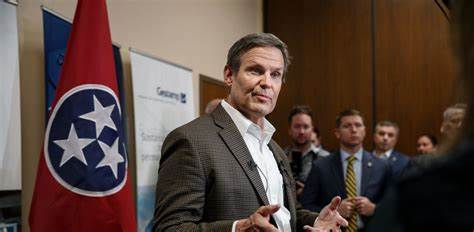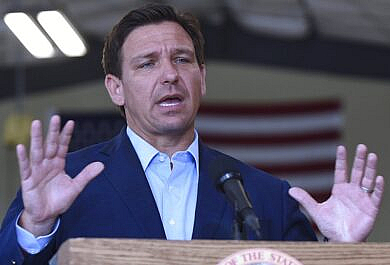US District Judge Thomas Parker, a federal judge appointed by former President Donald Trump, struck down Tennessee’s new law imposing restrictions on drag shows as “unconstitutionally vague and substantially overbroad.”
Summary
US District Judge Thomas Parker, a federal judge appointed by former President Donald Trump, struck down Tennessee’s new law imposing restrictions on drag shows as “”unconstitutionally vague and substantially overbroad.”
- Friends of George Inc., a Memphis-area nonprofit that produces drag shows, successfully argued in a lawsuit that the Adult Entertainment Act was a restriction on free speech that violated the Constitution.
- Gov. Bill Lee signed the Adult Entertainment Act into law in March after it sailed through Tennessee’s Republican-dominated legislature.
- According to WREG Memphis, Tennessee’s Adult Entertainment Act “did not explicitly state the words “drag show” but it changed the definition of adult cabaret in Tennessee’s law to mean “adult-oriented performances that are harmful to minors” with “male or female impersonators” falling under adult cabaret among topless dancers, go-go dancers, exotic dancers, and strippers.”
- Instead, “The law would have banned adult cabaret performances from public property or anywhere minors might be present. Performers who broke the law risked being charged with a misdemeanor or a felony for a repeat offense.”
- “Sadly, this ruling is a victory for those who support exposing children to sexual entertainment,” said Tennessee Senate Majority Leader Jack Johnson, one of the law’s chief Republican sponsors. He urged the state government to appeal the ruling.
![]()
- The Guardian cited one example of a non-drag performer who could’ve been penalized under Tennessee’s law, that of a “female performer who wore an Elvis Presley costume and mimicked the iconic musician, but could be at risk of punishment under the drag law because she would be considered a ‘male impersonator.’”
- The New York Times quoted Jonathan Skrmetti, the Tennessee attorney general and a defender of the law. ““The Adult Entertainment Act remains in effect outside of Shelby County,” he said, noting that the judge’s ruling only applies in the county surrounding Memphis. He added the law “is rooted in the U.S. Supreme Court’s long-established First Amendment precedent.”
- CNN observed that “Tennessee officials have argued that the measure is not a full ban and is only intended to stop overtly sexual performances in front of minors.” Judge Parker granted that the state has a “compelling interest in protecting the psychological and physical wellbeing of children” but the law amounted to “an unconstitutional restriction on the freedom of speech.”
![]()
- The Wall Street Journal noted, “Some of the bill’s supporters have said the legislation isn’t drag-specific and is aimed broadly at keeping adult-oriented entertainment from minors. However, one of the legislation’s sponsors, state Rep. Chris Todd, has said he intended it to limit drag shows.”
- National Review contextualized the law’s penalties: “Anyone who hosts or performs in a drag show in the presence of children would be charged with a class A misdemeanor, subject to a fine of up to $2,500 and up to one year in prison under the law. Additional violations would be escalated to a class E felony and carry one-to-six years of prison time and fines up to $3,000.”
- Breitbart noted, “the law has never been enforced because the federal judge had sided with the group that challenged the statute in March, and he temporarily blocked the law
© Dominic Moore, 2023




